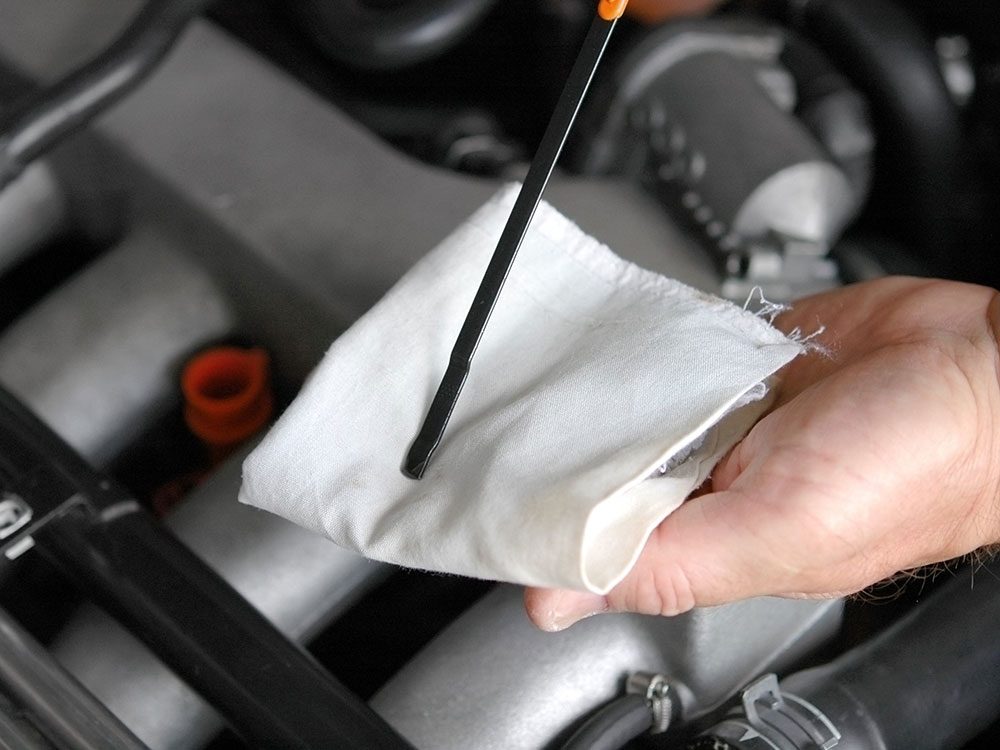Checking the engine oil levels frequently is the key to maintaining engine health. Low or high engine oil levels can be fatal to your engine and leads to several issues, including engine failure. But, the right way to check engine oil is also crucial. Many car owners ask, ‘Do I Check whether engine oil is hot or cold?
What is the proper way of Checking the Engine Oil Level?
Here is the Step-by-step guide on checking the Engine oil level in your car:
- Park your vehicle on the ground level.
- Let the engine cool down at least for
- 1 hour under normal climatic conditions,
- 2-3 hours under hot climatic conditions,
- Run your engine for 10 minutes under cold temperatures.
- Ensure that the engine temperature is cold enough that you do not burn your fingers/hands.
- Locate the engine bay and look for the dipstick
- Remove the dipstick to clean it thoroughly using tissue papers
- Now gently put the dipstick back in the engine and take it out again.
- The minimum and maximum oil levels are marked on the dipstick
- Check if the oil levels are in between the minimum and maximum levels.
- The newer car models come with an electronically controlled sensor.
- Check your service manual to understand if your car has an electronically controlled sensor.
What Are the Other Factors that Affect the Engine Oil Readings?
The two prominent factors that may result in adverse engine oil readings are:
Oil Expansion
Depending on the type of engine oil, the expansion, as well as the contraction rate, varies by the temperature. Synthetic oil experience more expansion and contraction as compared to regular oils. Thus you may observe the normal readings if you use standard oil. However, in the case of synthetic oils, they expand more when hot and experience higher contraction in cold temperatures.
Climatic Conditions outside
As discussed above, the climatic temperature also affects the readings. It would help to let the engine cool down at least 1 hour after driving in moderate temperatures to return it to the average temperature. Similarly, the readings will not be accurate under cold temperatures irrespective of the engine oil you use.
| You must check the readings of synthetic oils at the average temperature. If it is cold outside, turn on the engine for 10 minutes to bring the engine temperature to be expected. |
What Happens if the engine oil is low?
When the engine oil is considered low, it impacts the engine performance. The engine components do not receive lubrication and thus result in fiction and producing excessive heat. It may damage the crucial engine components, leading to costly repairs. The engine will ‘seize’, i.e. stop rotating and reciprocating.
Indicators of Low Engine Oil
Some of the prominent indicators of low engine oil that should not be ignored:
- Reduced Engine performance such as stalling out or suddenly losing power
- Excessive fiction and decreased lubrication results in engine overheating.
- Modern cars have oil warning lights that turn on with low oil levels.
- The smell of Burning oil due to leaking and hitting on a hot surface
- The fiction among engine components due to low crude causes engine noise
Reasons for Low Engine Oil
- A dirty Oil Filter restricts the movement of the oil and reduces the oil levels within the engine.
- In the event of over-clogged oil filters, the engine oil may bypass the filter leading to the free flow of contaminated oil.
- Using lower viscosity engine oil than the manufacturer’s prescribed results in less flow resistance.
- Leaky or bad oil pumps adversely impact the oil distribution leading to low oil levels.
What Happens if the Engine Oil is Too High?
Even over-filling to your engine is fatal. The over-filled engine results in foaming due to the crankshaft spinning whipping the oil back and forth. This froth results in drastic wearing off the engine. Hence, never over-fill your engine oil as it is also dangerous for your engine health.
Indicators of High Engine Oil
- Blue exhaust smoke
- High reading on the oil pressure gauge
- A burning smell
- An oil leak
Key Takeaway
Checking your engine oil regularly is crucial but checking it in the right way is most important. You must maintain the right engine oil level to help the engine work efficiently. Low and high engine oil levels are hazardous for your machine and can lead to severe consequences.

